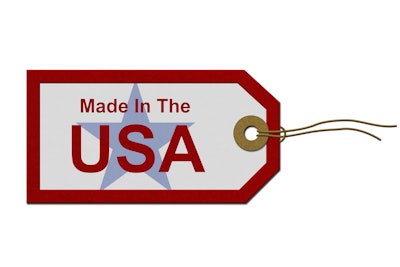
Despite the fact that the World Trade Organization (WTO) on multiple occasions deemed country of origin labeling (COOL) for U.S. meat and poultry products as inconsistent with free-trade standards, COOL is an issue that still persists.
“There will never be an end to country of origin labeling,” said Casey Gallimore, North American Meat Institute director of regulatory and scientific affairs.
Andrew Harig, FMI vice president of sustainability and policy development, agreed with Gallimore’s statement, referring to a quote from “The Godfather,” spoken by Al Pacino’s Michael Corleone character: “Just when I thought I was out, they pull me back in.”
Gallimore and Harig spoke about the labeling issue during the Regulatory and Policy Update session of the National Meat Conference on March 23.
While the WTO has ruled against mandatory COOL, there are still those who want to convey to consumers their products are made in the United States.
Instead, for U.S. meat and poultry producers, another option is being considered which Gallimore referred to as “Product of the USA labeling.” But that, she said, is under a lot of scrutiny. Some petitions related to such labeling have been denied, while others are waiting on a response from the U.S. Department of Agriculture’s Food Safety and Inspection Service (FSIS).
According to Gallimore, FSIS has said it will move forward with rulemaking related to Product of the USA labeling. Currently, the rules are more in line with if the product was processed in the United States, and not necessarily that the animal was raised in the U.S.
She believes the rulemaking process will be a long one, and the meat and poultry industry will want to follow that process.
“Whatever FSIS does through its rulemaking, they’re not going to make everyone happy,” she said. “There will be some significant change, and it’s going to disrupt someone’s business. The good news on mandatory COOL is the WTO was very clear in what we were doing was not going to fit the bill. So I think there was a big enough stick with that one to hopefully ward off mandatory (labeling) for a while.”
But she emphasizes the “for a while” part of that statement.
“Just when you and I think we can take a deep breath, (COOL) will come back again,” said Gallimore.

















